Whatever “When eating a fruit, think of the person who planted the tree.” – Vietnamese proverb
Whatever shop, commercial activity or house you enter in Vietnam, you will come across a small altar, either placed at the entrance of the shop, or in a prominent position in the household. It’s the ancestors’ altar, the symbol of a worship that has been an integral part of Vietnamese culture for more than 2000 years.
As I understand it, this worship is based on the belief that people’s soul survive the body after death of course, but it’s not strictly connected to any specific religion. The deceased members of the family are believed to live in another realm, bringing fortune and advice to their descendants. The family members are committed to express their devotion and to honor them in return, for the next three or four generations.
The ancestors are worshiped through daily offerings and rituals, such as burning incense, placing flowers, fresh fruits, sweets and gifts on the altar, or praying and bowing in front of it for a certain number of times. Cigarettes and beer are never missing, maybe to please the ancestors who are still craving these vices from their life on earth. I don’t know if there is any particular reason behind, but “Custas” mini cakes and biscuits are the most popular sweets on display (actually after trying the products, I figured out why they are more likely to be put on an altar, rather than be eaten). By the way, as far as I have seen in my office, food offerings remain there only until the expiration date get close, and are then eaten and replaced with fresh stuff, according to Vietnamese “zero-waste philosophy”.
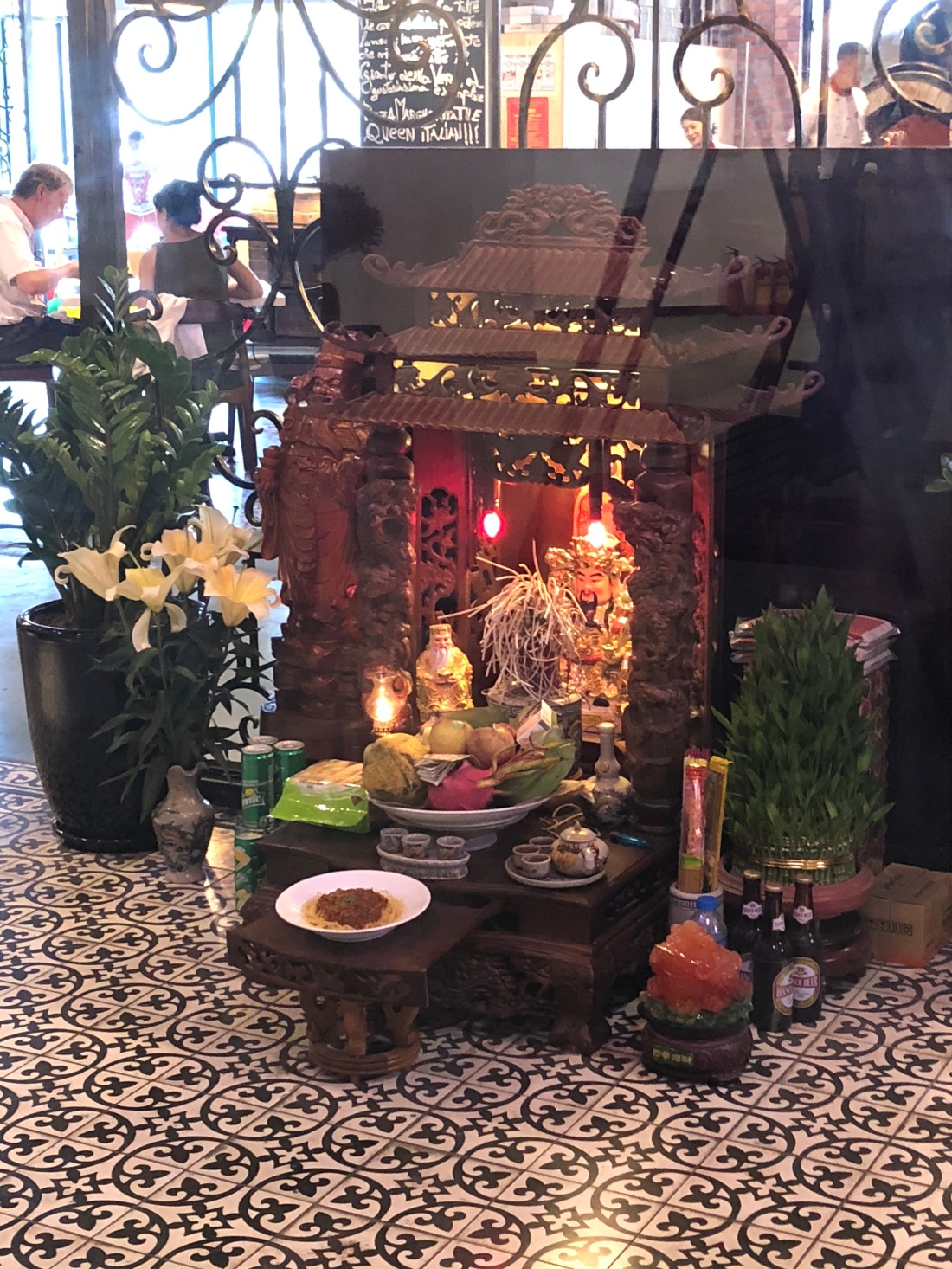
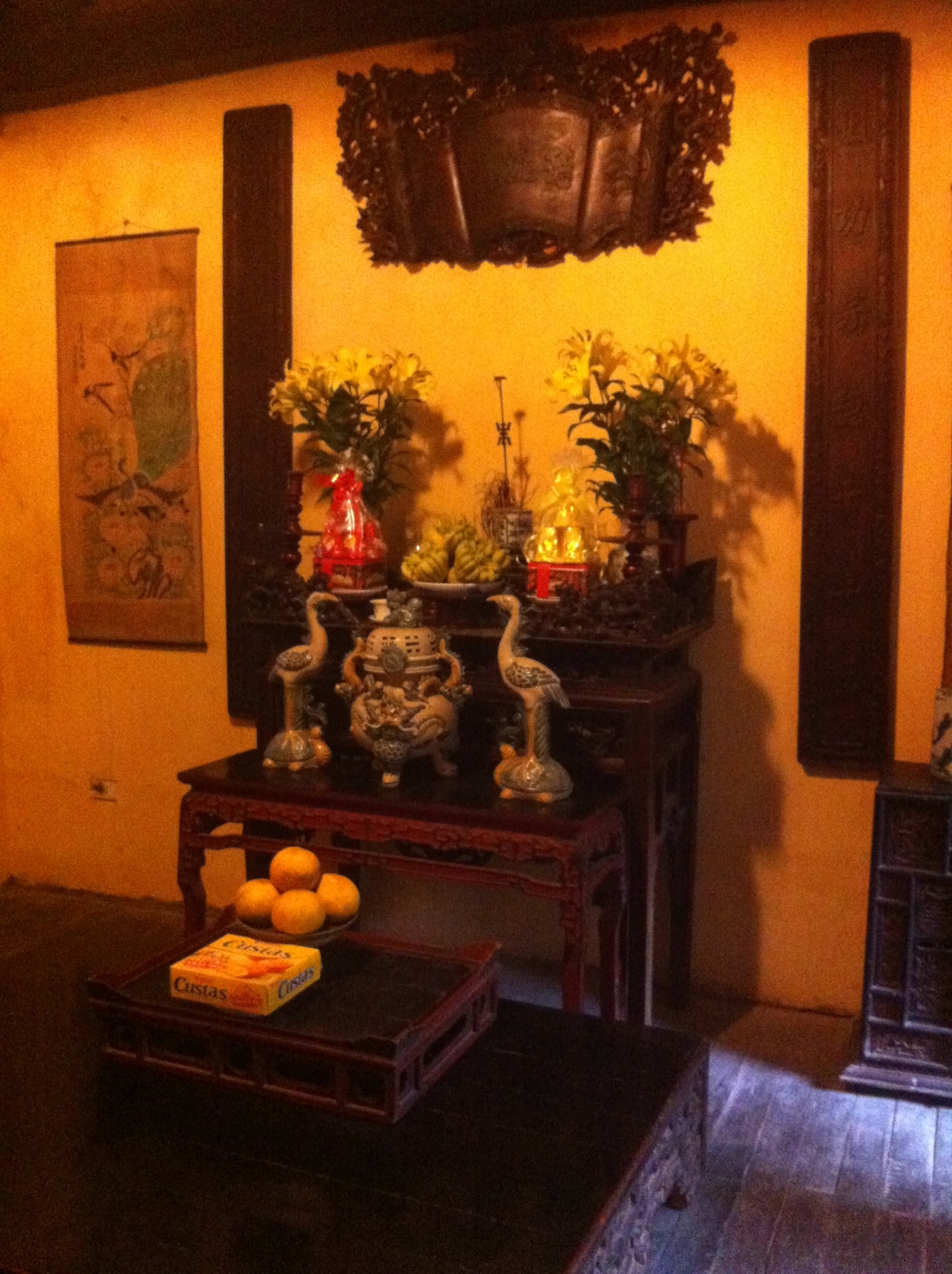
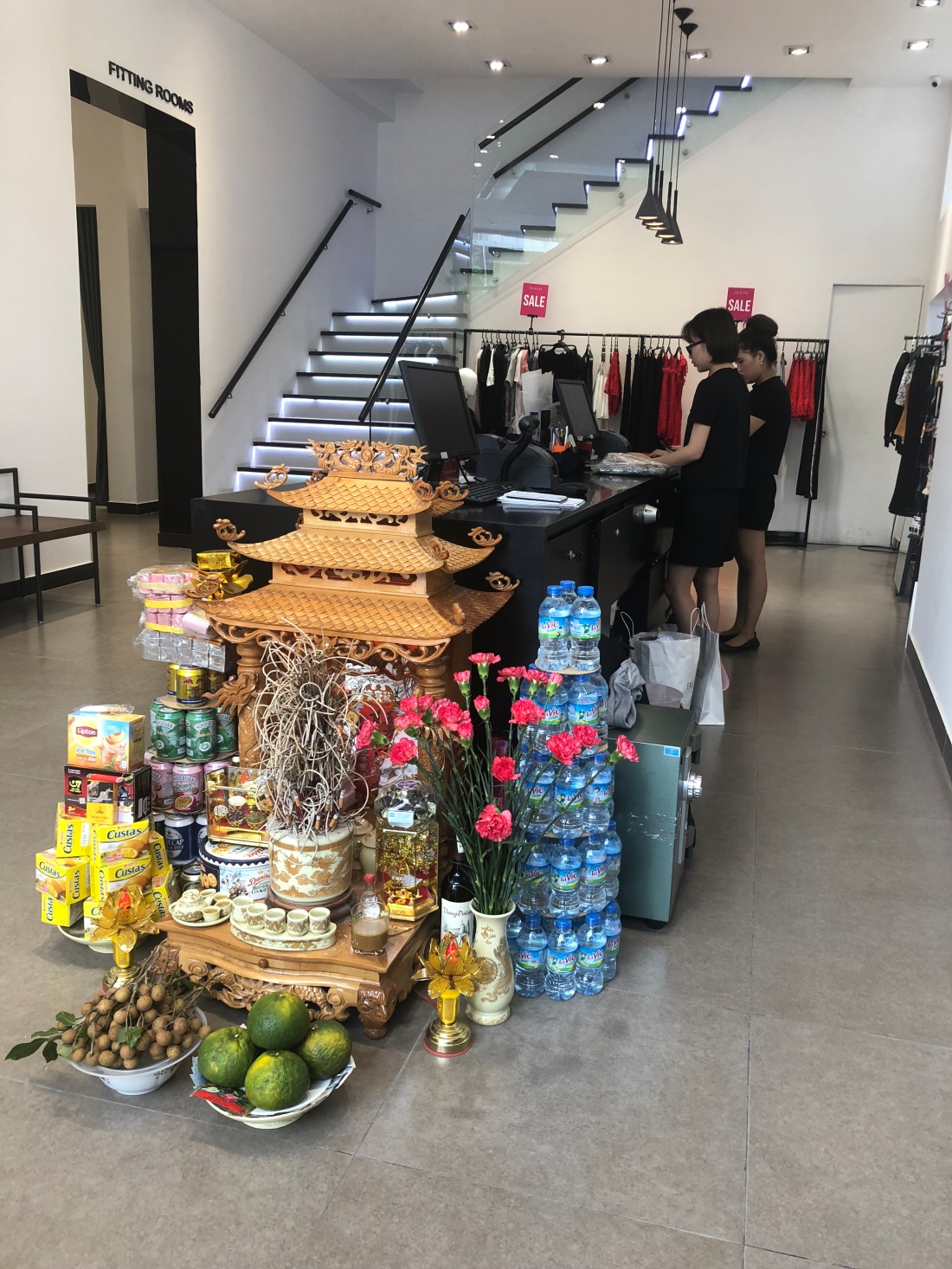
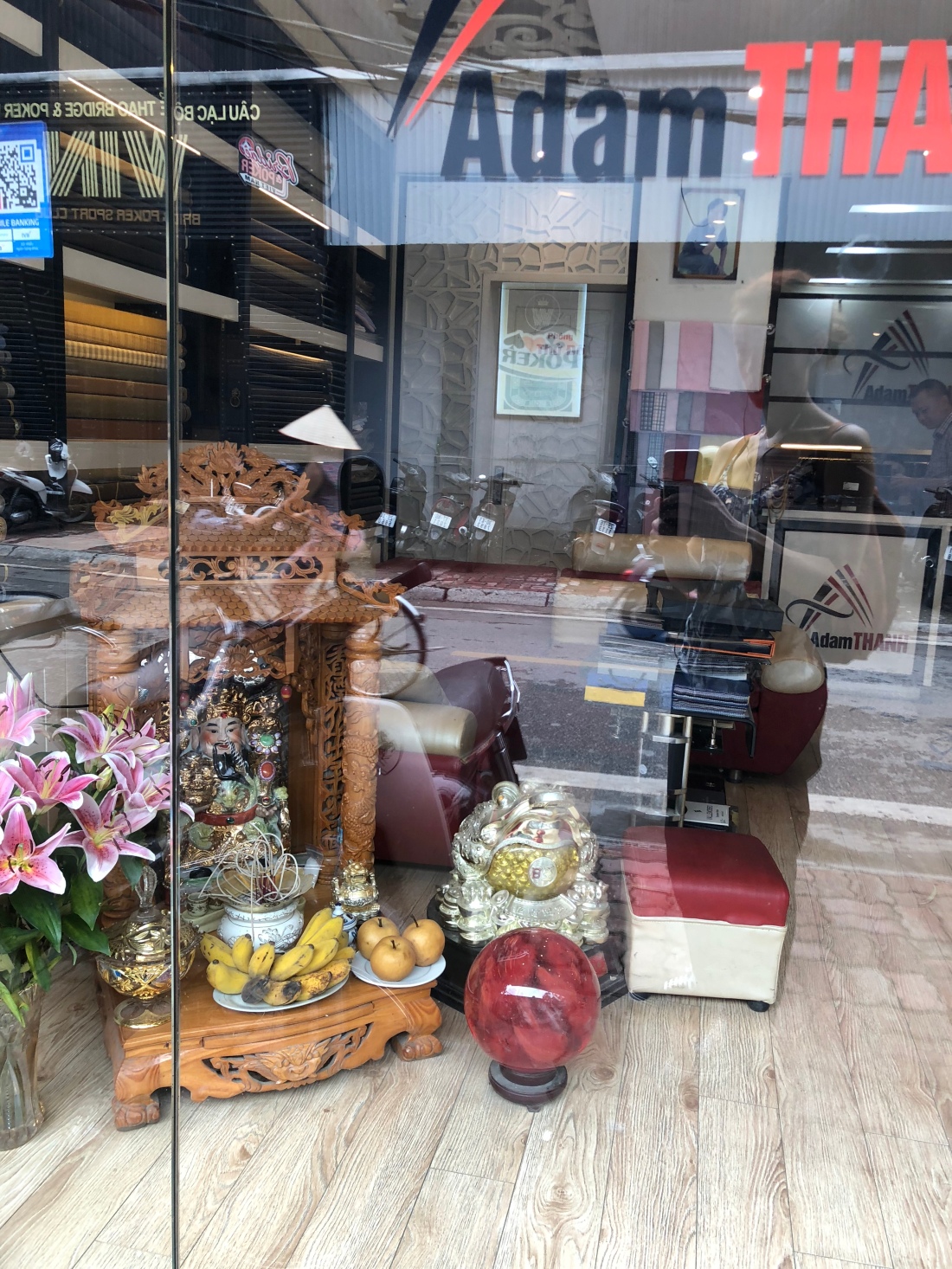
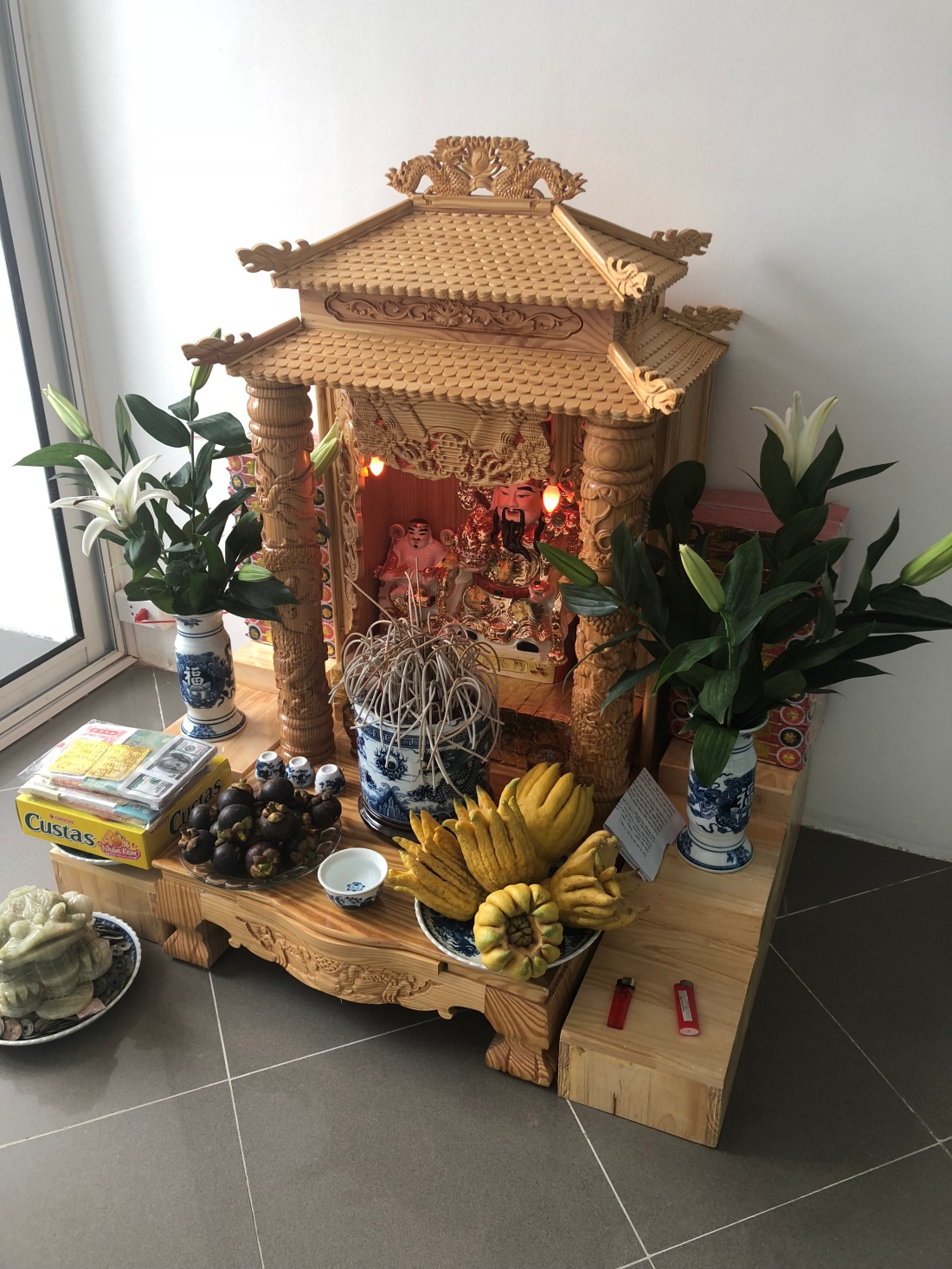
Moreover, the altar is usually decorated with a special citron, known as Buddha Lemon Hand. Since I had never seen this mutant lemon before moving here, I got very curious about the shape and wanted to chop those kind of weird fingers to smell and taste the pulp. This fruit is not available at all grocery stores, surely not at the Westerners’, but it’s pretty common at fruits stalls or within the street vendors’ baskets. Either way, I tried to buy one at a stall, and the lady started yelling at me in Vietnamese like I was asking something very disrespectful and offensive. So I found out that this fruit is clearly just for display within spiritual environments here. Maybe it is not supposed to be eaten or cut at all, and any Vietnamese would buy it for any other purpose or would ever be interested in a tasting.
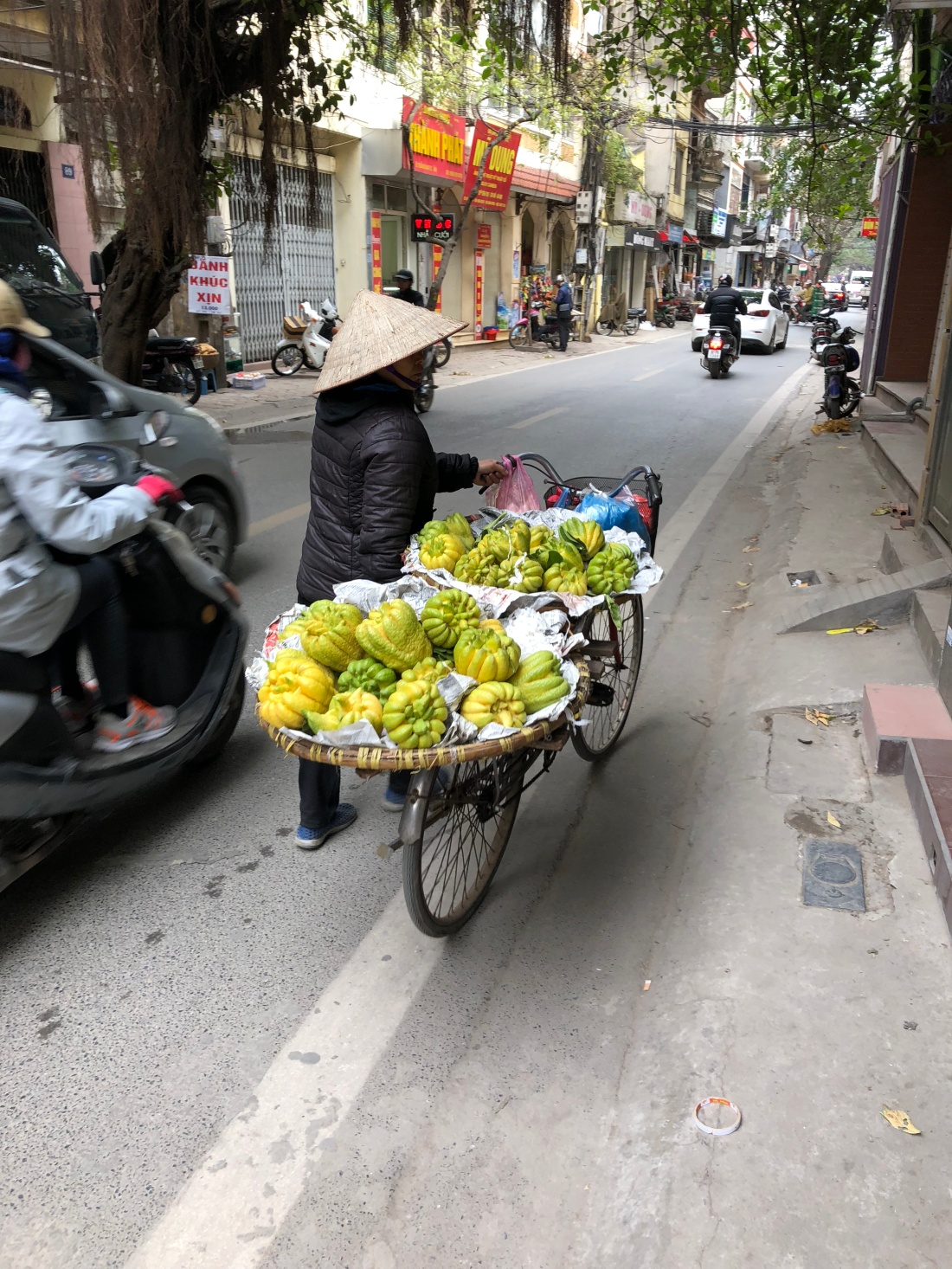
Coming back to worship, besides the daily practices, there are many prescribed ceremonies to honor the ancestors on special occasions, like the anniversary of their death, or the Lunar New Year. To mention some, for example, on the last day of every lunar year the ancestors are invited to return home to celebrate Tet holidays with their families. During Tet, all family members visit the graveyards to clean and decorate their tombs, in order to prepare them to welcome the new year. Any remarkable event happening in the family is also shared with the ancestors: whatever harvest, new birth or marriage is celebrated, new offerings are placed on the altar. But also in case of natural disasters or any problem affecting the family, a joss stick is burnt to ask for help and protection from the forefathers.
Burning “ghost money” (aka fake paper banknotes) and paper votive offerings in the street, but also in private yards or in front of the tombs, is another popular tradition, especially over Tet celebration. Once turned into ashes and smoke, these replicas are meant to be transferred to the afterlife in order to cheer up our beloved in their eternal life. The growth of the economy and the consequent broader imaginary of people, in terms of what is desirable and needed to enjoy life to the fullest, brought a fanciful and very funny diversification for paper votive offerings.
It took me while to understand that all those boxes full of paper shapes featuring motorbikes, credit cards, luxury watches, jewels, smartphones, iPads and fancy cars, on sale in the Old Quarter, were not toys for kids, but votive offerings.
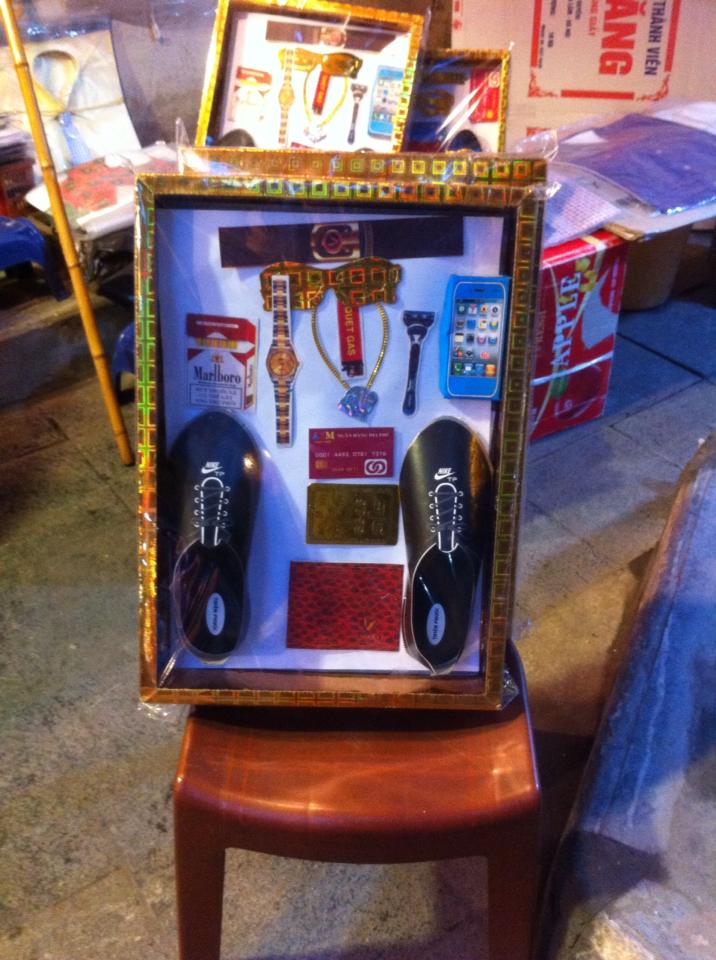
Either way, beyond the folklore of these customs, I believe this is a very fascinating and meaningful trait of Vietnamese culture, another evidence of their deep-rooted values and unconditional gratefulness, far beyond any God or religion and despite the very young population.
As they say, gratitude is a sign of noble souls.